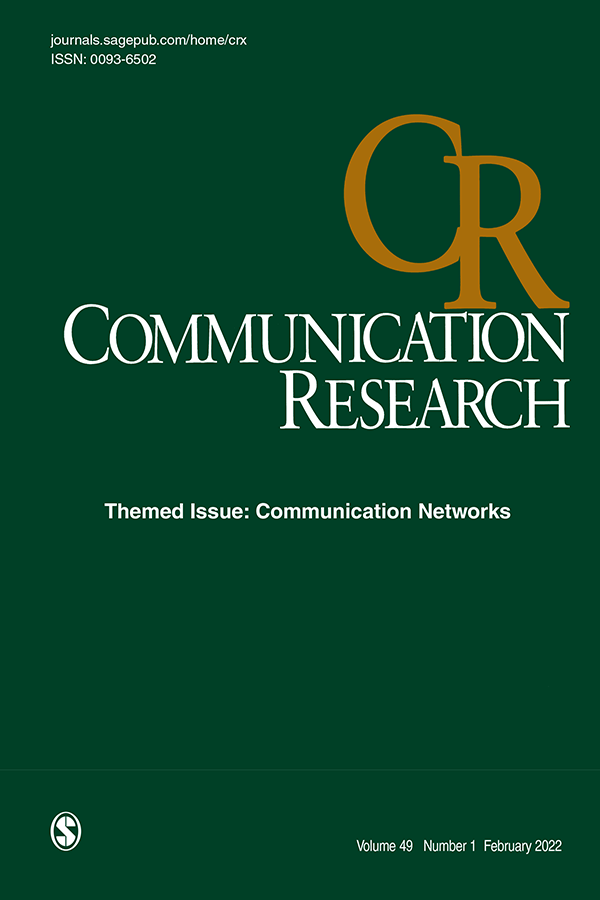对反态度证词的情感反应驱动说服效应:医生协助自杀的案例
IF 3.2
1区 文学
Q1 COMMUNICATION
引用次数: 0
摘要
明显有说服力的叙事,如证言,对叙事说服理论提出了重大挑战。这些理论认为,公开的有说服力的意图会减少娱乐性,而娱乐性的叙述会减少反驳。我们认为,叙事性叙事具有说服优势,因为它们能够唤起与信息一致的情绪,并减少对信息的情感抗拒。参与者(n = 1478)被随机分配阅读一篇关于医生协助自杀的叙述性文章或一篇非叙述性文章。文章被认为具有很强的说服力,娱乐意图较低;在感知的幸福意图上,叙事性高于非叙事性。正如预测的那样,推荐通过增加有意义的影响和减少对信息的情感抗拒来减少反驳。相互作用测试表明,这些影响在反态度参与者中更强。本文讨论了理解证言叙事的影响的理论含义,特别是当叙述是虚幻的,以及测量反驳和感知信息意图的创新。本文章由计算机程序翻译,如有差异,请以英文原文为准。
Affective Responses to Counter-Attitudinal Testimonials Drive Persuasive Effects: The Case of Physician-Assisted Suicide
Overtly persuasive narratives such as testimonials pose significant challenges for theories of narrative persuasion. Such theories argue that overt persuasive intent diminishes entertainment and entertaining narratives reduce counterarguing. We propose that testimonial narratives instead have persuasive advantages through their ability to arouse message-consistent emotions and reduce affective reactance to the messages. Participants ( n = 1478) were randomly assigned to read a testimonial narrative or a non-narrative article about physician-assisted suicide. Articles were perceived as highly persuasive and low in entertainment intent; the testimonial was higher than the non-narrative in perceived eudaimonic intent. As predicted, testimonials reduced counterarguing via increased meaningful affect and decreased affective reactance to the message. Interaction tests showed that these effects were stronger in counterattitudinal participants. Theoretical implications for understanding the effects of testimonial narratives, particularly when the narratives are eudaimonic, are discussed, as are innovations for measuring counterarguing and perceived message intent.
求助全文
通过发布文献求助,成功后即可免费获取论文全文。
去求助
来源期刊

Communication Research
COMMUNICATION-
CiteScore
17.10
自引率
0.00%
发文量
20
期刊介绍:
Empirical research in communication began in the 20th century, and there are more researchers pursuing answers to communication questions today than at any other time. The editorial goal of Communication Research is to offer a special opportunity for reflection and change in the new millennium. To qualify for publication, research should, first, be explicitly tied to some form of communication; second, be theoretically driven with results that inform theory; third, use the most rigorous empirical methods; and fourth, be directly linked to the most important problems and issues facing humankind. Critieria do not privilege any particular context; indeed, we believe that the key problems facing humankind occur in close relationships, groups, organiations, and cultures.
 求助内容:
求助内容: 应助结果提醒方式:
应助结果提醒方式:


